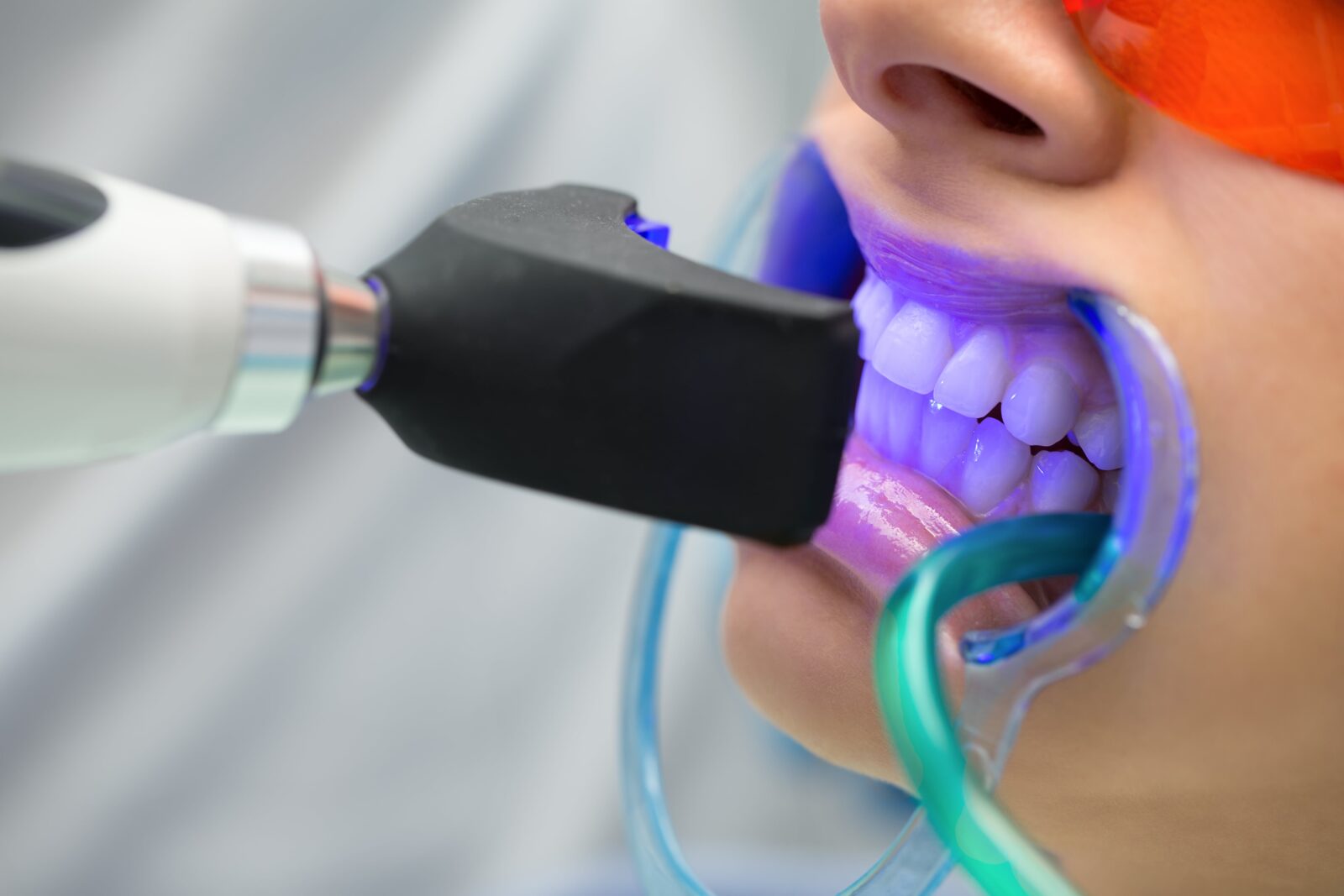Our cosmetic dentist at Sedation Dental Care is here to answer your questions about teeth whitening! After undergoing a professional teeth whitening treatment, many of our patients want to know how long their bright, white smile will last. There are a lot of factors that can affect the longevity of your results, but most people find that they keep their new pearly whites for an average of six months to one year. In some cases, however, whitening results can last up to 3 years! Keep reading to learn more!
In This Article:
- How Teeth Whitening Works
- Why Whitening Results Don’t Last Forever
- Factors that Affect Whitening Results
How Teeth Whitening Works

Teeth whitening works by applying a whitening agent to the surface of your teeth. This whitener is then absorbed into the enamel and dentin layers of your teeth, where it dissolves discolored molecules by causing a chemical reaction in the enamel and dentin layers of the tooth. Even after the whitener is rinsed off the surface of your teeth, it will continue to break apart discolored molecules for up to 24 hours after its initial application. After 24 hours, however, the whitener is safely absorbed by the body and is no longer effective.
Why Whitening Results Don’t Last Forever

When having your teeth whitened, it is important to remember that cosmetic whitening treatments do not last forever and results can vary depending on the individual. This is simply because teeth whitening treatments only remove existing stains and are unable to protect against future stains. As mentioned above, the whitener becomes inactive within 24 hours of its application. Since tooth enamel is highly porous, this means your teeth are susceptible to staining even after they have been whitened.
Factors that Affect Whitening Results
The reason why there is no exact answer for how long whitening results last is because there are a number of factors that can affect the longevity of your teeth whitening results. These include:
- Diet
- Lifestyle
- Oral Hygiene Habits
- Age
- Certain Medications
Diet

Consuming certain types of foods and beverages can cause your teeth to stain more quickly. Specifically, any food or beverage that contains a high concentration of pigmented, or colored, molecules. Foods such as vibrantly-colored fruits (blackberries, blueberries, pomegranates), tomato sauce, soy sauce, balsamic vinegar, and dark candies, can all cause your teeth to stain. So can beverages like coffee, red wine, dark soda, and tea. Therefore, the more you consume these foods and beverages, the quicker your teeth will become discolored.
Lifestyle
Just like diet, your lifestyle can have a major impact on the color of your smile. Smoking is a common lifestyle habit that makes teeth appear yellowish-brown over time. Using any type of tobacco product, including chewing tobacco, can cause your teeth to stain.
Oral Hygiene Habits
Oral hygiene habits, such as brushing and flossing, also play a major role in the color of your smile. Regular brushing and flossing are important for removing excess plaque to prevent it from hardening into tartar. Tartar can discolor your teeth and cause them to look yellowish. Additionally, people who brush and/or rinse their mouths after meals are more likely to remove colored pigments from their teeth, which decreases staining. Generally speaking, individuals with excellent oral hygiene habits tend to have longer-lasting results.
Age
As we get older, the natural whiteness of our teeth tends to fade. This is because the enamel starts to wear down until it eventually becomes transparent instead of white. This allows the underlying dentin layer to show. Since dentin has a yellowish color, thinning enamel can cause your teeth to appear yellow and duller than normal.

Certain Medications
Certain medications can also cause your teeth to stain as a side effect. For example, children who were treated with doxycycline or tetracycline may have discolored teeth. Other medications such as antihistamines, antipsychotic drugs, and blood pressure medications have also been found to stain teeth.
To Sum it All Up:
Overall, teeth whitening results don’t last forever since the whitener used becomes inactive about 24 hours after its application. Whitening results can last anywhere from six months to three years, with the average being about a year. There are a number of factors that can affect longevity. These include diet, lifestyle habits, oral hygiene habits, age, and whether you are taking or have taken certain medications. Still, teeth whitening remains one of the most common cosmetic treatments for people looking to beautify their smile.
